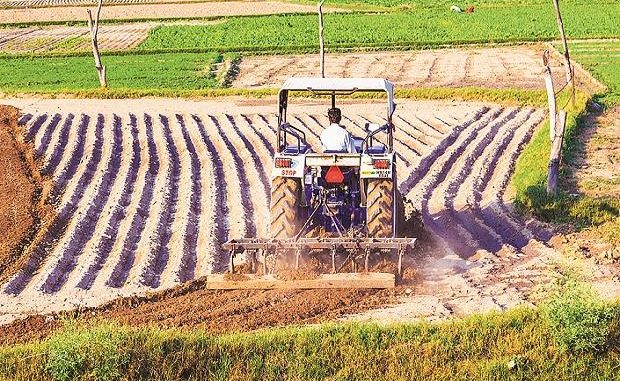
By Sanjeeb Mukherjee
Precision farming uses technology to make agriculture more accurate and controlled
As precision farming or smart agriculture gains prominence in India, global majors are adopting innovative solutions and customized models to help small and marginal Indian farmers whose investment capacity is limited.
Precision farming uses technology to make agriculture more accurate and controlled.
It uses information technology or other technological innovations like GPS, GNSS (Global Navigation Satellite Systems) and even drones to predict accurately and precisely what crops and soil need for optimum productivity and how to reduce yield wastages.
It is also used in post-harvest activities to ensure that farm products are stored in facilities that use optimum energy to control the weather and tools.
Though precision farming as a concept has been in existence since the last three-four years, but its reach was limited to few corporate farms and among big landholders primarily due to higher cost involved in acquiring and setting up the equipment, many of which have to be imported.
The prohibitive cost of the equipment and solutions have been a big hindrance in the spread of precision farming in India as common Indian farmers find it difficult due to high-cost involved.
“It is here that we are increasingly looking at custom-hiring models and tying up with local original equipment makers (OEMs) through whom we could push our products,” Rajan Aiyer, managing director of Trimble Information Technologies India told Business Standard.
Trimble which has been present in India through various information technology-based solutions mainly in the logistics, navigation and transportation space is increasingly looking to expand its farming footprint in the country.
It currently has a whole range of high-tech products that includes laser land levelers, GPS-based pest sprayers, Soil-Information Systems for soil preparation along with solutions for real-time yield monitoring, improving irrigation yields and drone-based applications to determine pest infestation.
An average laser-based land leveler costs somewhere around Rs 250,000-300,000, which might be difficult for small and marginal Indian farmer to afford, and that is where leasing and custom-hiring models come into the picture.
The leveler is mounted on a laser-based device which electronically guides it based on soil pattern, thus saving it from straying even minutely.
This not only saves time and energy but can also do more work.
“Majority of Indian farmers are small and depend on subsistence farming, if we can break this, precision farming will take off and become multi billion-dollar industry in India as the country holds immense potential,” Aiyer said.
Gradually several state governments are also looking to include precision farming equipment in their subsidy programmes which could give further boost to the sector.
“I remember a global research firm had forecast that India would have 100 million cellphones by the year 2000 and, in reality, we reached over 1 billion cellphones by 2000, so when it comes to India nobody can predict what the potential lies,” he said.

Sri Krishnan, Senior Vice President, Robert Bosch Engineering and Business Solutions says the company is also increasingly looking at hyper-local solutions tailor-made for Indian farmers that include subscription to its network of highly-sophisticated sensor-based digitized applications that measure soil moisture, humidity and other critical inputs with over 90 per cent accuracy.
Bosch has digital imaging of seeds and other solutions to improve the productivity of plants in the country, including high-quality sensors that accurately predict crop condition in polyhouses and also in open which is then transmitted digitally to be accessed by subscribers through a mobile app.
“There is growing trend of corporate farming in India who can afford our equipment and sensors, for others particularly small and marginal farmers we have a customized subscription model and are also working with cooperative societies who can buy the equipment on rent,” Krishnan said.
For post-harvest solutions, Bosch has developed a smart, IOT based product that replaces manually controlled cold storages with technology and also addresses the problem of inadequate power.
It is also using blockchain technology to undertake the traceability of high-value agriculture products, including tracking its moisture condition at the time of harvest etc.
Alongside, big names and multinationals are working in the field of agritech and precision and smart agriculture. There are several Indian startups which too are working in the field extensively using robotics, data analytics, IOT and blockchain technologies to improve yields, lowering input use and cost of production.
These start-ups and agritech firms have off-late started attracting a lot of investor interest, but some expert and columnists say scalability and prohibitive costs do act as a barrier in attracting greater investment towards this nascent sector.
In-house and India-specific models could help in faster adoption and spread of such new-age technologies in the country.
Global agritech firms increasingly looking at India specific models to spread precision or smart agriculture.
Precision farming is extensive use of technology to accurately control outcomes.
High equipment costs are a big hindrance to spread of precision farming in India.
Some states are including precision farming equipment in their subsidy programmes.
India has over 50 agritech start-ups that provide a variety of technological solutions to farming.
Source: Business Standard

Leave a Reply